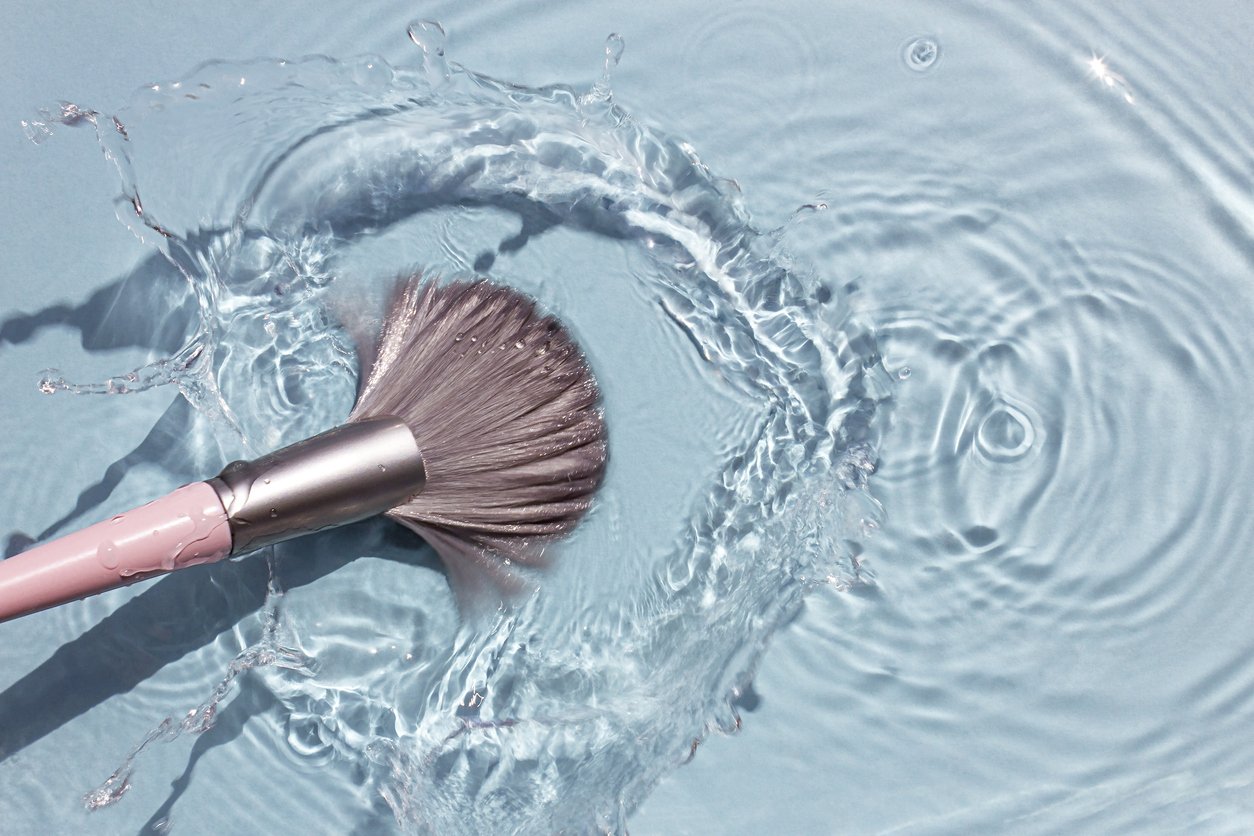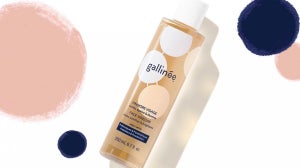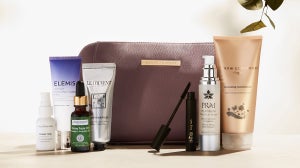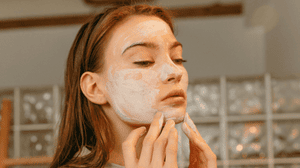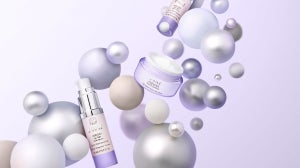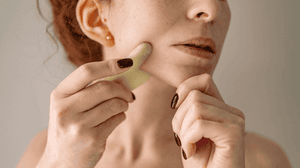
In honour of the infamous spring clean, we thought we would round –up our top tips on how to clean your makeup brushes.
So, you know which brushes to use for contouring and concealing, but did you know that your makeup brushes need cleaning once a week? Though this step should be a regular part of your beauty routine, it’s fair to say that some people may not clean their brushes as often as they should.
With 39% of women admitting to cleaning their brushes just once a month and 22%saying they have never cleaned them at all, it’s a task that many put to the bottom of their list.
Whether you're the proud owner of an extensive brush collection or you prefer to stick to the essentials - discover our guide to better brush hygiene to help keep them in tip-top condition.
Why Should You Clean Your Makeup Brushes?
When you use your brushes, traces of product, oil, dirt and even bacteria can get trapped in the bristles. If they're not cleaned regularly, this could be transferred onto your skin and may lead to clogged pores and breakouts.
In addition to your skin health, there are a couple of other reasons why keeping your tools clean can be so beneficial. For one, quality makeup brushes can be expensive, so learning how to clean them properly is one of the best ways to protect your investment.
Secondly, by removing build-up from your brushes, it may help them to glide seamlessly for a more flawless makeup application.
How Often Should You Clean Your Makeup Brushes?
Brushes used for wet products, such as foundation and concealer, should be deep-cleaned at least once a week, as they become a breeding ground for bacteria.
We recommend cleaning powder brushes used around the eyes at least twice a month to avoid irritation in such a sensitive area.
All other brushes, such as your powder brushes, can be a couple of times a month, as these types of products will take longer to build up on the bristles.
To keep your brushes in the best condition possible, use a quick and easy anti-bacterial daily brush cleaner to refresh them between each use.
Note: Your brushes will take a few hours to air dry after a deep clean, so we recommend washing them when you know you won’t need to use them for a while, either in the morning after you’ve applied your makeup, or in the evening so you can leave them overnight.
When to Replace Makeup Brushes
Whether they’re losing bristles, feeling rough on the face or have lost their shape, it may be time to invest in some new tools.
Although their longevity will depend on your level of care, brushes used for powders typically last between two to three years, whereas those used for liquid or cream-based products have a slightly short lifespan of one to two years.
What to Clean Makeup Brushes With
There are so many options when it comes to washing your brushes, but which one do you choose?
Sometimes it just depends what you have on hand, and, although a brush cleaner may be the most obvious choice, other household products can also be effective in keeping your brushes in great condition. Here are a few of our favourites:
Specialist Makeup Brush Cleaner
Specialist brush cleaners are particularly effective as they are specifically formulated to remove dirt and oil whist also nourishing the bristles for soft, smooth application, time after time.
Many cleaners also contain anti-bacterial ingredients that could help to sanitise and disinfect brushes.
Washing Up Liquid
If you've not got any specialist cleaner to hand and your brushes are in desperate need of a refresh, then washing-up liquid can be used on occasion.
Its de-greasing properties help to break down oils and leave your brushes clean and ready for the next application. However, we advise using this sparingly, as it could be a little too harsh on the bristles if used too frequently.
Baby Shampoo
Due to the delicate nature of makeup brushes, using a mild baby shampoo is an excellent option.
Formulated to be gentle and non-irritating, it is believed to be suitable for cleaning and maintaining the softness of natural bristles, without causing damage or dryness.
However, it may not have anti-bacterial properties, so if your brushes are really dirty or haven’t been washed in a while, then it might be worth using a specialist brush cleaner.
Olive Oil
If you wear a lot of heavy makeup - especially cream-based products – this option might help you get rid of stubborn build-up.
We recommend mixing a small amount of olive oil with a gentle liquid soap or shampoo and working it into the bristles.
The oil can help to loosen the makeup and soften the bristles, whilst the soap cleanses and sanitises to leave you with fresh, clean brushes.
White Vinegar
Cleaning makeup brushes with white vinegar could be another great option if you've not got any specialist brush cleaner to hand. The acetic acid found in vinegar is thought to have anti bacterial properties, ideal for sanitising your brushes.
We recommend mixing two tablespoons with one cup of warm water to create your solution.
Note: Take care not to let the vinegar reach the ferule (the metal part) of the brush to maintain the integrity of the glue.
How to Wash Your Makeup Brushes: Step-by-Step
Here’s our guide for brushes needing a thorough clean:
1. Wash your hands before you start the cleaning process, so you don’t introduce any more bacteria.
2. Next, run your brushes under lukewarm water. This helps to dampen the bristles, so they are super receptive to your cleaning agent.
Note: Whilst it’s important to thoroughly clean your brushes, try to focus on the bristles and avoid the part where the handle meets the head, as this can weaken the glue over time.
3. Once damp, apply some shampoo onto the palm of your hand and gently swirl the bristles to loosen the residue for about 20 seconds.
4. Carefully rinse the bristles under warm running water until it runs clear. If your brushes are really dirty, you may have to repeat steps two and three a few times.
5. Gently squeeze the excess water out of the brush using your hands or a towel.
Note: Avoid vigorously rubbing when drying, this can distort the shape of the brush and affect the integrity of the bristles.
6. Place brushes onto a towel and position over the edge of a flat surface to dry. We recommend doing this overnight as it may take a few hours for them to dry out completely.
Makeup Brush Cleaning Tips
When it comes to cleaning your tools, sometimes you just have to think outside the box. Here are our favourite brush-cleaning hacks that will help keep them clean and in optimal condition.
Use a Sieve as a Cleansing Mat
To thoroughly clean your makeup brushes, consider using a clean sieve.
Once you’ve dampened the bristles with lukewarm water and added your cleansing agent, begin swirling the brush against the sieve. The textured surface is super effective in releasing makeup residue, oils and dirt from the brush head.
However, we do recommend using a separate sieve to the one you use in your kitchen to keep things hygienic.
Hang Your Brushes to Dry
If you don’t have a flat surface to hang them off and you’re wondering how to dry your makeup brushes after cleaning, then this is the tip for you.
Start by securing your freshly washed tools to a hanger using a rubber band or hair tie and leave in a warm, airy room. This method will help you to maintain the shape and integrity of the bristles.
This method will help you to maintain the shape and integrity of the bristles as it allows water to drip away from the base, preventing moisture from loosening the glue.
Use a Cleansing Spray
If you’ve forgotten to wash them the night before a big event and you’re wondering how to quickly clean your makeup brushes, then this is the tip for you.
Often used by professional makeup artists to quickly sanitise brushes in between clients, specially formulated sprays can help to reduce bacteria and build-up, without needing to dry them overnight.
Simply spray the bristles with the solution and swirl the brush onto a piece of paper towel for five seconds and you’re good to go.
Use a Brush Cleaning Device
If you find brush cleaning too much of a chore, a specialised device could be the motivation you need to do them more regularly.
Claiming to wash and dry the brush in just 30 seconds, these machines could help to eliminate some of the effort that comes with the task.
Makeup artists often choose this method for speed, as this machine works to wash and completely dry them in one cycle, so they are ready to use immediately.
With some extra care, your clean makeup brushes will continue to be invaluable tools in your kit. So, if you have been putting this job off for a while, this is your sign to thoroughly wash them and enjoy better makeup application.
If your tools are past the point of repair, start fresh and shop our full range of makeup brushes.
